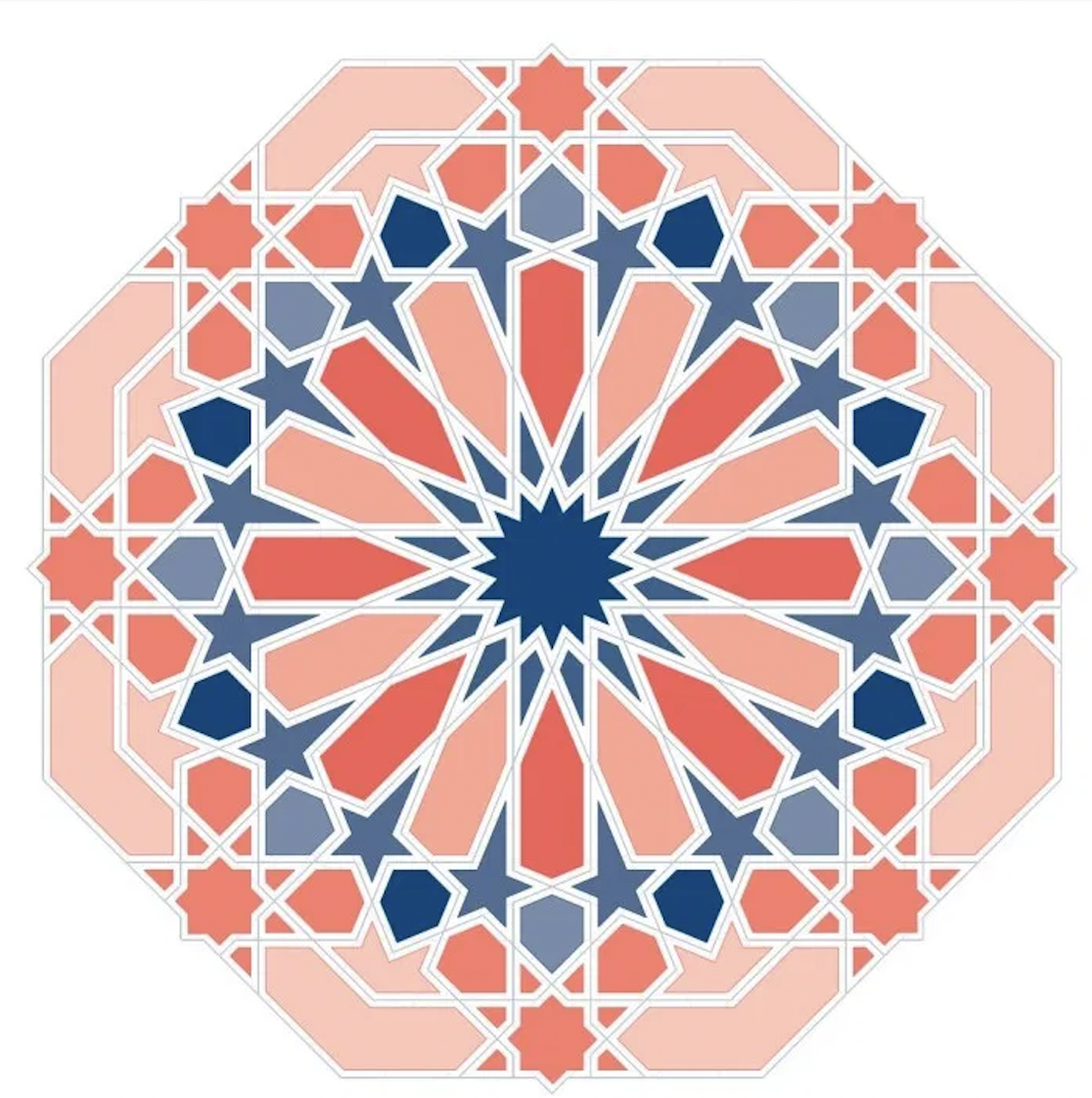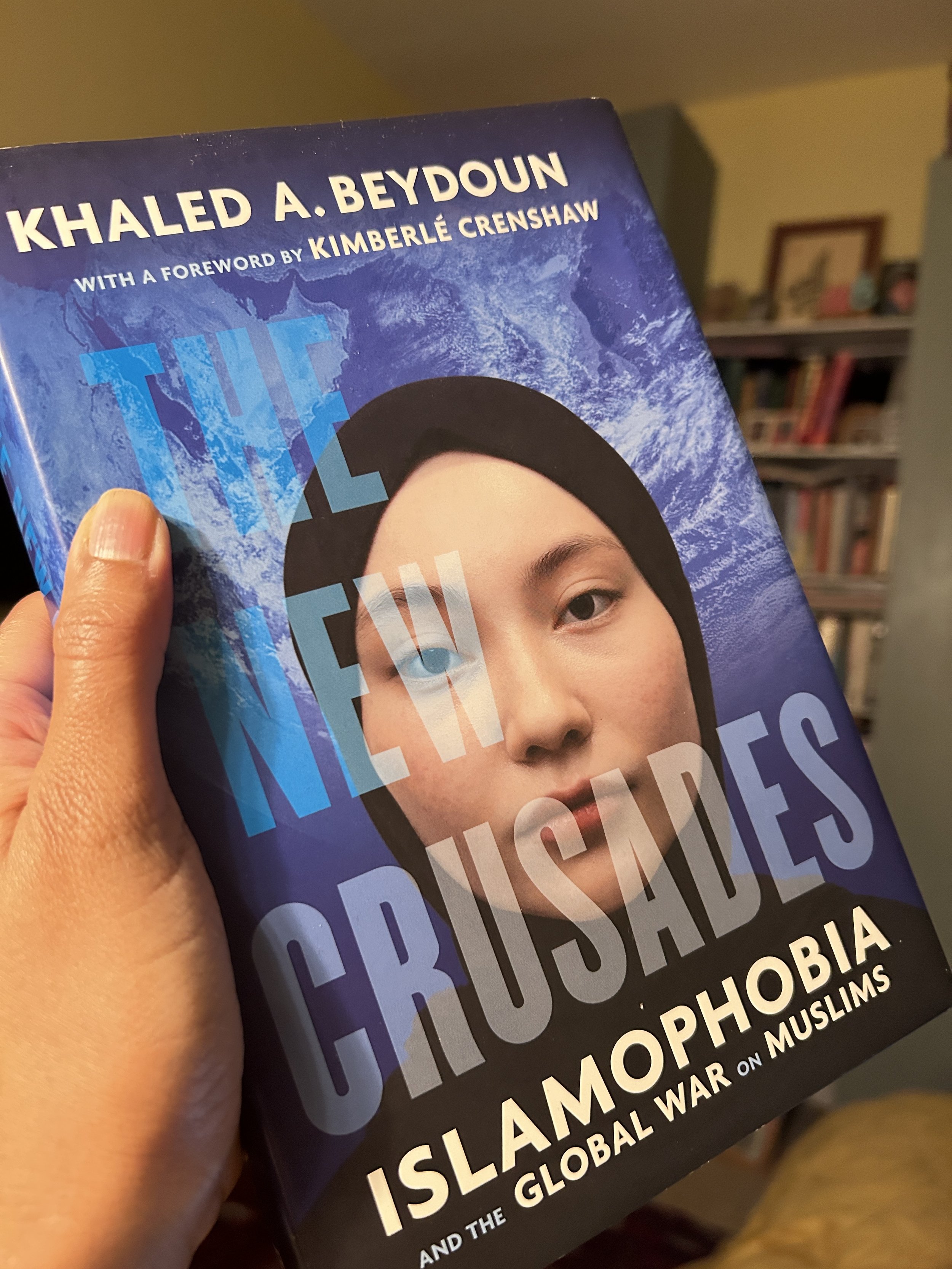The New Crusades Book review
Islamophobia is not a new phenomenon. Anti-Muslim hatred has been around since the advent of Islam in the 7th century. The Prophet Muhammad (PBUH) experienced this when the tribe of Quraysh fought against his faith and against those who embraced Islam. They were persecuted, abused, killed for their faith.
Since then, Islam spread rapidly across the world including the land of Jerusalem in 638, under the leadership of Caliph Umar ibn Al-Khattab. The Pope declared a Holy War or ‘ Crusade’ against the Muslims in 1095 to reclaim the Holy Land, which led to a series of Crusades to fight the Muslim infidels.
In his book, ‘The New Crusades: Islamophobia and the Global War on Muslims’, Khaled Beydoun argues this very point that Islamophobia is not new, and has roots in the past. “Tying Islamophobia to imperialism and unveiling it as a global phenomenon requires a return to its formative roots, the Crusades, when “notions of race and of Muslims as inferior beings could come to the four in a context where European nations were in a position to actually challenge and eventually dominate once-powerful Muslim empires.“”
Beydoun argues that the ‘Islamophobia’ which has always existed, was batted across the world in a coordinated campaign due to the so-called ‘War on Terror,’ post the tragic events of 9/11. “Islamophobia is now more than ever a global phenomenon, and the War on Terror has evolved into an imperial project that advances it across longitudes and latitudes.”
Muslims who have been labelled throughout western narratives since the Crusades as barbarians, uncivilised, backward and sexually perverse were now also labelled as ‘Terrorists’ which flowed as a logical extension to what was already in western psyche. Anti-Muslim narratives are interspersed through classical western literature, history sources and books, and modern-day film. Hollywood is notorious for depicting Muslims in a largely negative way, often as terrorists or backward foreigners. Muslim women especially, have been targeted and depicted as scantily clad enchantresses, or dwellers of harems, victims of honour killings and abusive Muslim men to “letter boxes” as described by Boris Johnson.
The War on Terror became about ‘us’ and ‘them’, and you are either ‘with us or against us’ language. ALL Muslims were criminalised alongside their faith. “Washington had elevated to its signature counterterror philosophy the theory that Muslims were predisposed to extremist behaviour.”
The narrative that was extended was depicting “Islam as inherently violent.” And the premise of radicalisation theory, focused exclusively on Muslims. This has been the imbalance with the Prevent Programme in the UK for example, leaning heavily on ‘Muslim extremism’ while ignoring other forms such as Far Right Extremism or Hindutva ideology. Recent riots in the UK have meant that the Prevent programme was caught off-guard as the Far Right pogrom targeted Muslims primarily. As Beydoun states, the baseline is that all Muslims are presumed terrorists and Islam inspires extremism “this baseline forms what is now widely known as Islamophobia, a term that spurs the unseeing of Muslims… for who they truly are, in exchange for the blanket cover of terror suspicion.” Beydoun adds: “Islam, a faith undressed of its rich meaning and normative complexity, has been cloaked with a blanket of suspicion that now envelops its adherents.”
The global ‘War on Terror’ campaign sold an image of the evil, sinister Muslim. And it also sold the idea of the clash of two civilisations - Islam and the West. Beydoun remembers the work of renowned academic, Edward Said who said that “Islam, therefore, was a rival “civilization” mangled by Western hands to facilitate their imperial ambitions and justify the violence they inflicted on masses of Muslims who – far from the shores of Europe – were painted as imminent threats. The imminence was not physical or even geographic, but tied to memory and lucid in the imagination; namely, the memory of those old and original Crusades, always present in the collective psyche of Europe, and later, the United States.”
Historically, the threat that Muslim Empires caused the West in their ambition for global domination was a serious one. The Muslim world had to be brought to its knees so that colonialism could take root and ensure lifelong servitude to the western world. This included the destruction of Muslim Empires, social engineering, and partition of lands in a way that has caused ongoing conflict. Muslims populations across the world continue to be seen as a threat to governments such as China, India, France and Myanmar. The populations in these countries are being targeted by Islamophobia, ethnically cleansed in some areas and even put into concentration camps such as the Uyghur people.
However, instead of condemning these actions in what should be a stand for humanity, the Global War on Terror has played a role in making Islamophobia socially acceptable. Beydoun goes into depth exploring the Islamophobia and ethnic cleansing that is happening on a widescale level across the world. He gives examples in Modi’s India, the annexing of Kashmir, the Uyghurs in Xingjiang, Islamophobia and banning of the headscarf in France and Buddhist extremism in Myanmar. “For governments in India and China, France, and Myanmar, and regimes beyond and in between, Islamophobia has been wielded as a blunt weapon.”
Despite all this evidence and visible Islamophobia, it is really shocking when government institutions and people deny the existence of Islamophobia and refuse to give robust protections against perpetrators and enablers of this discrimination. Beydoun says: “While its principal propagators insist that it is a myth, Islamophobia persists as one of the final forms of acceptable bigotry. It is, as I have stated time and again, the last bastion of tolerable hate that is not only palatable in the popular sphere, but a hate that pundits build careers off of, politicians claim power through.”
It is even more distressing when unequivocal support is given to the people of Ukraine who are battling an unjust invasion of their land by Russia. This treatment is not extended to Muslims across the world including the Palestinians who are also resisting an occupation and facing a “plausible genocide” according to the International Court of Justice. Beydoun says: “Unarmed Palestinians resisting the state seizure of their homes in Sheikh Jarrah are conflated with armed militants, rendering them “terrorists.”” Beydoun adds: “The world became even more absurd when Russia invaded Ukraine.… What explains the world of difference between the Ukrainian struggle for freedom and the ongoing quests for self-determination in Muslim majority lands? Why are Ukrainians “freedom fighters,” while Muslims struggling for that very same dignity and independence in occupied Kashmir or the West Bank, Gaza or Yemen are dubbed “terrorists?” The only reason why there would be this inequality stems from the privilege of Whiteness.
This book gives really interesting insights and examples of Islamophobia, its roots and history. Many academics like Beydoun put forward the theory that Muslims are ‘racialised’ as opposed to being the victims of a faith-based hatred. It is a theory which some thinkers do not agree with, as they state that Muslims are a faith-based community who come from all different racial and ethnic backgrounds. This view states that oppression and discrimination Muslims face is to do with their faith and not the colour of their skin. Although Muslims can also experience racism, and Black people can experience Islamophobia – so the two are intersectional.
Beydoun likens the experience of anti-Blackness to Islamophobia which are in many ways similar. To address both these fights accurately, it is also important to acknowledge the different roots causes and histories which need to be addressed in their own context in order to tackle them.
When I saw the title of this book ‘The New Crusades’, I felt encouraged that others are also exploring the roots of Islamophobia before the War on Terror. The history of anti-Muslim discrimination is important in the understanding and dealing with Islamophobia. The fight needs to really focus on institutional change within systems that uphold these inequalities for all. Lip service and optics of inclusion are not enough. I recommend reading this book to get a holistic understanding of how Islamophobia is playing out in the world today.

